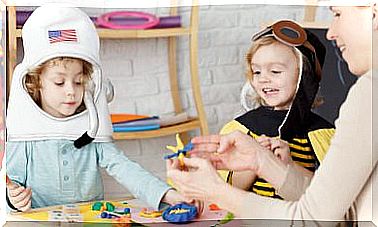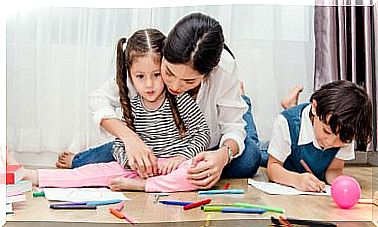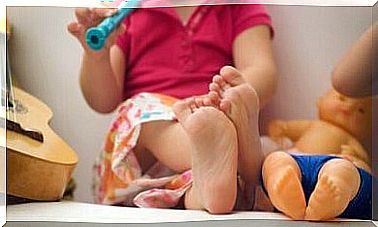What Not To Do When Helping Your Child With Homework

Helping children with homework is fine, sometimes it is even essential. However, keep in mind that helping children with homework should seek to promote children’s independence from studying and promote the development of problem-solving and time organization skills.
For children to get good grades or to be the best in the class is not a healthy goal for the child per se . The important thing is not that the child gets the best grades, but that he improves his abilities.
Children need to learn to feel capable and to seek strategies that will lead to better grades. Doing their homework for them or doing everything with them step by step will not help them to achieve it and, therefore, the supposed help is just one more handicap in their progress.
Here are the worst mistakes parents often make when helping their kids with homework and how to fix them.
Sit down to do homework and do everything with them
When children are young they may need help from their parents, for example, if they are starting to read or write. But even in these cases you have to leave the child some independence and let him do only part of the task. In any case, supervising homework is not the same as doing homework with them.
But many parents, overwhelmed by the amount of homework their children have and / or because their children get the best possible grades, sit down to do their homework and do all the homework with their children, including study work. In this way, children become dependent, they do not learn to cope with the task or to manage their time properly. Also, they feel unable to do things for themselves.
Even if the child does not have the perfect task, and even if he does not get as good grades as he could, he must face the task alone and learn to solve his problems, both those raised by homework and those involved in organizing himself to study and attend only when have a question. Only then will you be able to know what your child needs help with and will you be able to help him reach his full potential.

Threatening children without their favorite activity
Many parents, to motivate their children to do homework quickly and get good grades, threaten them without doing their favorite homework if they don’t finish on time or if they don’t get good grades. However, this only creates tension and anguish in the child, and its effect may be just the opposite.
Instead, it is much more effective to talk to the child and help him organize and manage his time, both day to day and week. Most children, faced with the idea of having to continue with their homework when they arrive from the activity in question, tend to rush more to be able to enjoy other activities. Another healthy alternative to encouraging children to be faster and more effective is to offer a reward (not material) if they finish on time.
Demand perfection in tasks
Perfection can hinder the child’s progress in their tasks, especially when the children’s idea of perfection is very far from the idea of their parents. In fact, with the amount of chores kids have, demanding perfection from them is just one more way to add load to their routine.
It is much more effective to ask the child to do it well, cleanly, correctly, and to highlight those moments in which the task is best performed so that he or she can do his best himself.

Force you to study for long hours
Children need to move, breathe, play, expand, and generally enjoy their leisure time. Forcing them to sit for hours and hours before the task does not get them to improve, or learn to organize themselves, but rather they generate negative feelings about studying.
Instead, it is convenient to offer the child rest times, starting with a time of rest from the end of school and eat or snack until he begins to do his homework. It is also highly recommended that children play sports and spend time outdoors. This is not a waste of time, but rather it makes the child fresher and less stressed.









